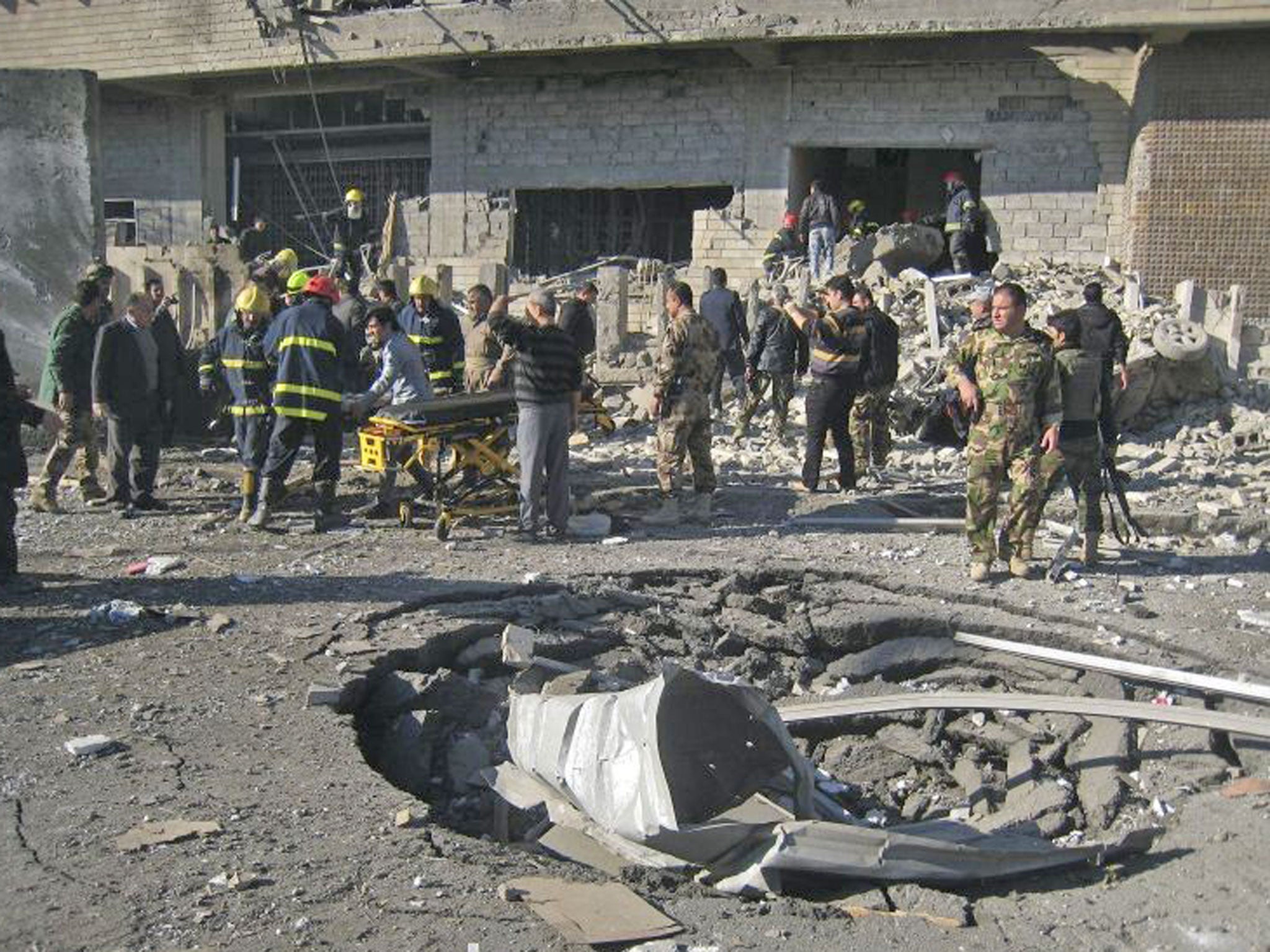Suicide bombing attack that kills at least 16 show al-Qa’ida retains its influence in Iraq

Suicide bombers killed at least 16 people outside the police headquarters in the northern Iraqi city of Kirkuk today in the third such attack in the region in recent weeks.
A vehicle painted to resemble a police car and packed with explosives, was first detonated at the side entrance of the police station before two gunmen dressed as police, wearing explosive belts, tried to fight their way into the building. Both were killed before they could blow themselves up. At least 12 government employees died and a large crater was left in the road.
According to some sources, as many as 33 people may have been killed and 90 wounded in the attack, which also injured the Kirkuk police chief, Sarhan Qader. Like its recent predecessors, the attack has the hallmarks of a well-coordinated al-Qa’ida operation.
Kirkuk, with its mixed Kurdish, Arab and Turkmen population, has been controlled by the Kurds since they captured it at the time of the US-led invasion in 2003. But Kurdish claims to Kirkuk have never been recognised by the government in Baghdad, which also disputes the right of the Kurdistan Regional Government to award oil exploration contracts to foreign companies. There have also been a series of stand-offs in the so-called “disputed territories” between Kurdish and government forces, although most confrontations have been defused.
Al-Qa’ida, while not the force it was in 2006-07, is still capable of recruiting suicide bombers and making sophisticated attacks.
The official police account says “a suicide bomber driving a vehicle packed with explosives hit the entrance of the headquarters and after the blast gunmen in explosive vests attacked with AK47s and grenades, but the guards killed them.”
It is not clear exactly how the latest attacks relate to ethnic divisions in and around Kirkuk, but they appear to be aimed at contesting the Kurds’ de facto control. One of the bloodiest recent bombings was directed at Shia Turkmen in the town Tuz Kharmato, south of Kirkuk, when a bomber killed 23 people inside a mosque.
Some 4,400 people were killed in attacks and bombings in Iraq in 2012, the first increase in three years.
Subscribe to Independent Premium to bookmark this article
Want to bookmark your favourite articles and stories to read or reference later? Start your Independent Premium subscription today.

Join our commenting forum
Join thought-provoking conversations, follow other Independent readers and see their replies